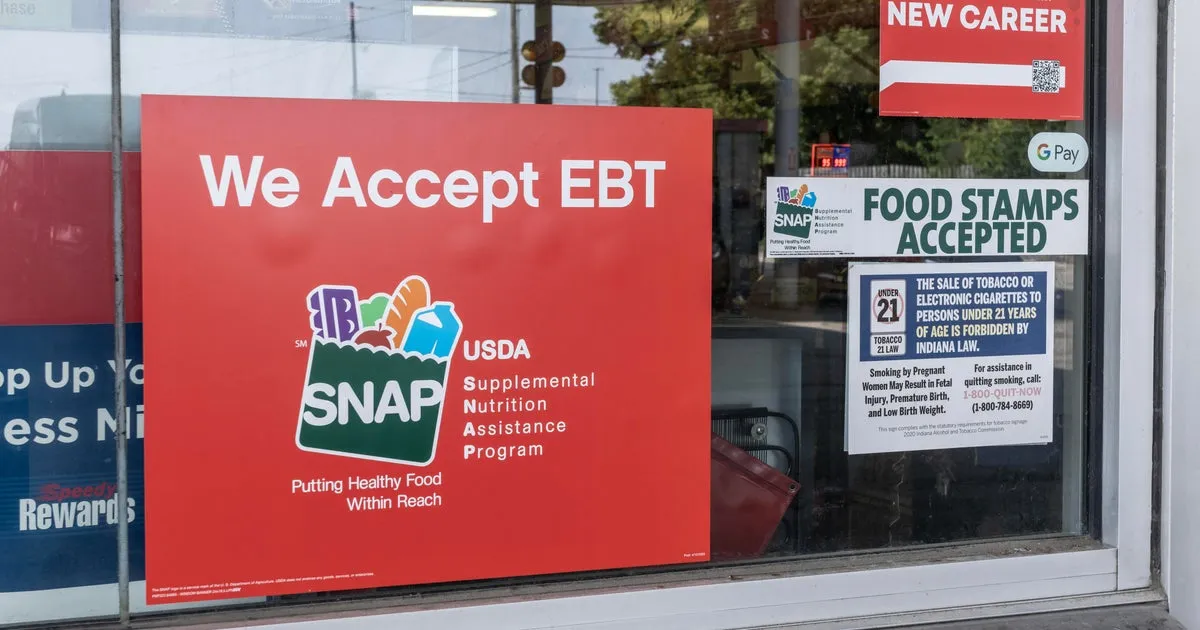
The U.S. Department of Agriculture (USDA) has announced its intention to utilize a contingency fund to allow states to issue partial benefits for November under the Supplemental Nutrition Assistance Program (SNAP) during the ongoing government shutdown. In a declaration submitted to the U.S. District Court for the District of Rhode Island, Patrick Penn, a USDA official overseeing SNAP, explained that the administration plans to deplete the contingency funds entirely to provide reduced benefits for the month of November.
According to Penn, there is approximately $4.6 billion available in the contingency fund, which will be allocated to cover the SNAP benefit payments for November. However, officials estimate that fully covering these benefits would necessitate around $9 billion. As a result, the USDA plans to use the available funds to provide only 50% of the eligible households' current allotments. This decision affects over 42 million Americans who depend on SNAP for their food purchases, as the program has run out of funding due to the ongoing government shutdown.
The SNAP program operates by the federal government sending funds to states, which then manage the food stamp programs for their residents. In a separate statement, lawyers from the Justice Department informed the court that the administration would meet its obligation to allocate the full amount of the contingency funds. They indicated that states would receive the necessary information to calculate the benefits for each eligible household. However, the relief for food-aid recipients may not be immediate, as Penn noted potential payment errors and significant delays due to the variations in state eligibility systems.
These systems must be adjusted to accommodate the reduced payment amounts, and for some states, the required changes could take weeks or even months to implement. The uncertainty surrounding these adjustments adds to the challenges faced by those relying on SNAP benefits during this critical period.
Democracy Forward, a legal advocacy group representing municipalities and nonprofit organizations that previously sued the Trump administration, has stated that it is exploring all legal avenues to secure the full payment of SNAP funds. Skye Perryman, the group's president and CEO, expressed frustration, stating, "It shouldn't take a court order to force our president to provide essential nutrition." The group remains committed to using legal channels to protect the rights of individuals who depend on these benefits.
Additionally, Senator Amy Klobuchar from Minnesota, who serves as the top Democrat on the Senate Committee on Agriculture, Nutrition, and Forestry, urged the administration to reallocate funds from other programs to ensure full funding for November's benefits. Klobuchar criticized the current approach, asserting, "It is not enough to do the bare minimum." She emphasized the administration's responsibility to prioritize food security for Americans.
The USDA's filing was a response to an order from Judge John McConnell, who is overseeing the case brought by nonprofits and municipalities in Rhode Island. Last Friday, McConnell directed the Trump administration to use the contingency fund to address the lapse in SNAP funding caused by the shutdown. The judge required the government to provide a status update on the fund distribution by the following Monday.
In parallel, a separate case in Massachusetts saw two dozen states and the District of Columbia filing a lawsuit to compel the administration to utilize the contingency funds. The presiding judge in that case echoed the sentiment that the government has a legal obligation to use these funds, requesting an update by the same deadline.
Despite the urgency of the situation, the Trump administration and congressional Republicans had previously argued that the contingency funds could not be utilized for SNAP benefits due to a lapse in the program's underlying appropriation. However, both judges overseeing the respective cases disagreed, affirming that the congressionally approved contingency funds must be deployed in light of the shutdown.
Judge McConnell highlighted the necessity of using these funds promptly, stating, "There is no question that the congressionally approved contingency funds must be used now because of the shutdown." He also noted the government's responsibility to find additional resources to fully fund the November SNAP payments, given that the $4.6 billion in the contingency fund falls short of the required $9 billion.
The USDA had previously warned that federal food benefits would not be distributed to approximately 42 million recipients on November 1 due to the shutdown. The agency attributed this pause in benefits to congressional Democrats' refusal to support a GOP-backed stopgap measure for funding federal agencies. As the shutdown enters its 34th day, it threatens to become the longest in U.S. history if lawmakers fail to reach an agreement on a spending measure.
This decision to pause food aid marks a significant shift from the USDA's initial plan issued on September 30, which indicated that multi-year contingency funds could be utilized for state administrative expenses to maintain SNAP operations during a shutdown. However, the agency later communicated to states that these reserve funds were not legally available for regular benefits, claiming they were intended for priorities such as assisting individuals in disaster areas.